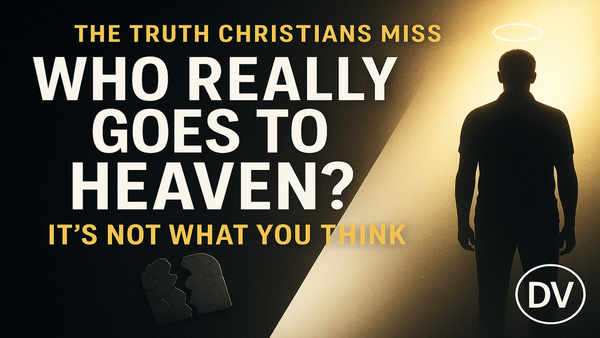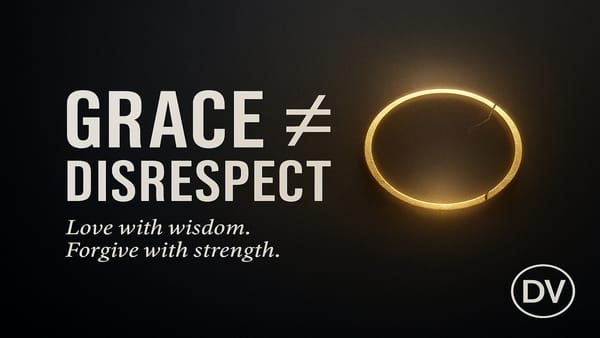The Seven Archangels: How God Reveals Courage, Healing, Wisdom, Peace, Obedience, and Mercy Through His Heavenly Messengers
Humanity has always sensed that heaven is closer than we think. In Scripture, in ancient traditions, and in the deepest longings of the human heart, there is a belief that God sends help—not only through the Holy Spirit, but also through the mighty beings Scripture calls angels. Among these, seven stand uniquely close to God’s throne: Michael, Gabriel, Raphael, Uriel, Raguel, Sariel, and Remiel.
These seven are not distant figures of mythology—they are windows into seven dimensions of God’s character. Each one reveals something essential about who God is and how He moves in your life today.
Before we explore the meaning and modern significance of each archangel, here is a powerful companion resource that brings their story to life:
Watch Seven Archangels Meaning for a vivid walkthrough of their identities and purpose.
Why Seven Archangels? Why Now?
The idea of seven archangels appears in ancient Jewish writings like 1 Enoch, in early Christian tradition, and in the deuterocanonical book of Tobit, where Raphael identifies himself as “one of the seven who stand before the Lord”. Though only three are named in the canonical Bible—Michael, Gabriel, and Raphael—Christian scholarship widely acknowledges the seven-archangel tradition as part of the ancient understanding of God’s heavenly court.
Sources such as the Catholic Encyclopedia, Oxford Biblical Studies, and materials from Harvard’s Center for the Study of World Religions provide consistent support for the historical presence of these seven. Their names vary slightly across traditions, but the seven-fold pattern remains.
Why are these seven important today?
Because their attributes mirror the exact things people hunger for:
- Courage in a fearful world
- Healing for wounds that medicine cannot touch
- Wisdom in a chaotic age
- Reconciliation in divided relationships
- Obedience that leads to freedom
- Mercy that restores hope
- A voice of God that speaks in the silence
The seven archangels help us understand that God does not meet only one category of human need—He meets all of them.
ARCHANGEL MICHAEL — Courage That Defeats Fear
Among all archangels, Michael stands as the warrior of heaven. His name means “Who is like God?” and that question forms the core of his identity. Every time Michael appears in Scripture, darkness trembles.
According to the Encyclopedia Britannica and biblical scholars from Yale Divinity School, Michael is consistently portrayed as:
- Defender
- Warrior
- Protector
- Leader of heaven’s armies
Michael in Scripture
- Revelation 12:7–12 — Michael defeats the dragon.
- Daniel 10:13 / 12:1 — Michael stands for God’s people in times of battle.
- Jude 1:9 — Michael confronts the enemy without falling into pride.
What Michael Represents Today
Michael embodies the courage God gives when you confront:
- Anxiety
- Spiritual battles
- Fear of the future
- Attacks on identity
- Opposition or heavy burdens
Michael does not symbolize reckless bravery—he represents divine courage, the kind that defeats fear because it is rooted in God’s power, not your own strength.
A Powerful Practice
Write down one fear that has followed you too long.
Place your hand over the paper.
Pray:
“God, give me the courage that comes from You alone.”
Michael’s presence points you back to a God who still fights for His people.
ARCHANGEL GABRIEL — God’s Voice Breaking Into Silence
If Michael is heaven’s warrior, Gabriel is heaven’s voice.
Gabriel’s name means “Strength of God” or “God is my strength”, and scholars from Princeton Theological Seminary note that Gabriel appears during pivotal moments in salvation history.
Gabriel in Scripture
- Daniel 8–9 — Interprets visions and reveals God’s plan.
- Luke 1:11–20 — Announces the birth of John the Baptist.
- Luke 1:26–38 — Announces the birth of Jesus Christ to Mary.
Every time Gabriel appears, the silence of heaven breaks open and God speaks new life.
What Gabriel Represents Today
Gabriel represents the moment God speaks when everything feels quiet.
He appears in times when you cry:
- “God, I can’t hear You.”
- “Lord, I need direction.”
- “What am I supposed to do next?”
Gabriel reminds you that God still speaks through:
- Scripture
- Moments of clarity
- Conviction
- Peace
- Dreams
- Discernment
- Wise counsel
A Gabriel Practice
Sit in silence for two minutes today.
Say, “Speak, Lord, Your servant is listening.”
When clarity arrives, recognize the gentle ministry of Gabriel—the messenger of God’s voice.
ARCHANGEL RAPHAEL — Healing for Wounds and Scars
If Michael is courage and Gabriel is divine communication, Raphael reveals God’s healing heart.
Raphael’s name means “God heals”. As documented by scholars from Boston College and the highly respected Jewish Encyclopedia, Raphael appears explicitly in Tobit 3, 5, 12 as both healer and guide.
Raphael in Scripture
- Restores Tobias’s father’s sight
- Protects Tobias from spiritual danger
- Heals emotional wounds
- Leads travelers safely on their path
What Raphael Represents Today
Raphael symbolizes the healing God offers when:
- Your heart is broken
- Trauma resurfaces
- Your body suffers
- You feel spiritually sick
- You carry guilt or shame
- Your relationships need repair
Raphael is not merely sweetness—his healing is deep, transformative, and life-restoring.
A Raphael Practice
Place both hands over your heart.
Whisper: “God, heal what I cannot heal myself.”
Let Raphael remind you that God heals the seen and the unseen.
ARCHANGEL URIEL — Light of Wisdom Guiding Your Steps
Scholars from Cambridge University Press describe Uriel (“Light of God”) as the archangel connected to insight, revelation, and discernment.
Uriel in Ancient Writings
Uriel appears in:
- 1 Enoch
- 2 Esdras (recognized in Eastern and some Western traditions)
- Early Christian mystical writings
Uriel is often depicted holding:
- A flame
- A scroll
- A sunburst
- A book of wisdom
What Uriel Represents Today
Uriel symbolizes God’s wisdom breaking into confusion.
He is the presence you feel when:
- A decision becomes clear after prayer
- You receive insight that settles your spirit
- You sense what is true versus what is false
- God reveals a hidden answer
- Light falls on a path you couldn’t see before
A Uriel Practice
Ask one life-question you’ve been avoiding.
Pray: “Lord, shine Your light on my next step.”
Uriel’s presence brings clarity where confusion once lived.
ARCHANGEL RAGUEL — Peace, Justice & Reconciliation
Raguel means “Friend of God”, and in ancient Jewish writings he is the archangel of justice, fairness, and restored relationships.
Researchers at Notre Dame and scholars of Second Temple Judaism note that Raguel is the angel who restores balance wherever harm has been done.
What Raguel Represents Today
- Healing family fractures
- Repairing friendships
- Calming internal emotional battles
- Restoring peace between believers
- Making things right when wrong has been done
Where Michael brings courage, Raguel brings harmony.
A Raguel Practice
Think of one conflict in your life.
Pray: “God, bring Your reconciliation into this situation.”
Raguel points to the God who heals community as deeply as He heals the soul.
ARCHANGEL SARIEL — Obedience That Brings Freedom
Sariel (also Sarakiel or Saraqael) is referenced in 1 Enoch and ancient Christian writings as the archangel associated with guidance, discipline, and obedience to the will of God.
What Sariel Represents Today
Sariel reminds you that obedience to God is not restriction—it is freedom.
God’s will sets you free from:
- Confusion
- Sin
- Double-mindedness
- Toxic decisions
- Fear of the unknown
- Spiritual stagnation
A Sariel Practice
Ask yourself:
“What step of obedience have I been delaying?”
Sariel encourages you into the kind of obedience that opens doors instead of closing them.
ARCHANGEL REMIEL — Mercy and Hope for Eternity
Remiel (sometimes Jeremiel) appears in 1 Enoch, 2 Baruch, and other ancient texts as the angel of eternal hope—one who gives visions of what lies beyond this life.
Harvard Divinity School notes that Remiel’s name means:
- “Mercy of God,” or
- “Thunder of God” (depending on translation)
What Remiel Represents Today
Remiel is the archangel of:
- Mercy
- Hope
- Eternal perspective
- God’s compassion for humanity
- Life after death
- Joy beyond the present moment
When life feels heavy, Remiel reminds you that eternity is real—and mercy is stronger than despair.
A Remiel Practice
Close your eyes.
Imagine eternity for five seconds.
Say: “Lord, give me hope that reaches beyond my present circumstances.”
Remiel lifts your eyes to the God who writes stories bigger than your lifetime.
How the Seven Archangels Create a Unified Picture of God
Each archangel reveals one part of God’s character.
Together, they reveal a God who is:
- Strong
- Close
- Healer
- Teacher
- Peacemaker
- Guide
- Redeemer
Here is the seven-fold portrait:
| Archangel | Divine Dimension | What It Means for You |
|---|---|---|
| Michael | Courage | God empowers you in fear |
| Gabriel | Divine voice | God still speaks |
| Raphael | Healing | God restores your wounds |
| Uriel | Wisdom | God reveals clarity |
| Raguel | Peace & justice | God restores relationships |
| Sariel | Obedience | God frees you through alignment |
| Remiel | Mercy & eternal hope | God gives future beyond present pain |
This seven-fold pattern mirrors the completeness often associated with the number seven throughout Scripture—seven days of creation, seven spirits before the throne, seven lampstands, seven seals, and more.
How to Put the Seven Archangels Into Practice in Your Daily Life
Here are meaningful ways to apply these seven heavenly dimensions:
1. A Seven-Day Spiritual Rhythm
Day 1 — Michael: Pray for courage
Day 2 — Gabriel: Ask to hear God’s voice
Day 3 — Raphael: Invite healing
Day 4 — Uriel: Seek wisdom
Day 5 — Raguel: Pursue reconciliation
Day 6 — Sariel: Practice obedience
Day 7 — Remiel: Reflect on eternal hope
2. Transformative Journaling
Write one paragraph each day about how that archangel’s attribute showed up in your life.
3. Scripture Pairings
- Michael — Revelation 12
- Gabriel — Luke 1
- Raphael — Tobit 12
- Uriel — Psalm 119 (“Your word is a lamp…”)
- Raguel — Matthew 5 (“Blessed are the peacemakers…”)
- Sariel — Romans 12
- Remiel — 1 Corinthians 15
4. Prayer Postures
- Michael — stand
- Gabriel — silent stillness
- Raphael — hand over heart
- Uriel — candle or light nearby
- Raguel — open palms
- Sariel — kneeling
- Remiel — eyes lifted upward
5. Life Application
Ask:
“What is the dimension of God I need today?”
Frequently Asked Questions
Are all seven archangels in the Bible?
Only Michael, Gabriel, and Raphael are named directly in the canonical Bible. The others appear in respected ancient Jewish and early Christian writings.
Are these seven accepted in Christian history?
Yes. Major sources like the Jewish Encyclopedia, Catholic Encyclopedia, and early Christian literature affirm the seven-archangel tradition.
Can I pray to archangels?
Christians pray to God alone, but may ask God for the attributes represented by the archangels—courage, wisdom, healing, etc.
Why do some lists include different names?
Because traditions differ, but the seven-fold pattern remains.
Final Reflection: God Meets Every Human Need
When you understand the seven archangels, you understand something far bigger:
God does not meet just one category of human need—
He meets all of them.
He gives:
- Courage (Michael)
- Voice (Gabriel)
- Healing (Raphael)
- Wisdom (Uriel)
- Peace (Raguel)
- Freedom (Sariel)
- Mercy (Remiel)
And He gives them generously.
The seven archangels are reminders that heaven has never been silent, distant, or uninvolved.
God is near—closer than your breath, and more powerful than your greatest fear.
Written with faith, purpose, and devotion,
Douglas Vandergraph
Watch Douglas Vandergraph’s inspiring faith-based videos on YouTube.
Support this ministry through Buy Me a Coffee.
#Archangels #Michael #Gabriel #Raphael #Uriel #Raguel #Sariel #Remiel #ChristianFaith #SpiritualHealing #DivineWisdom #GodsPresence


